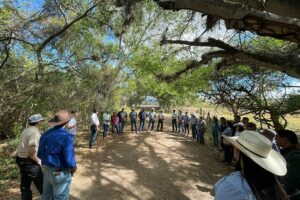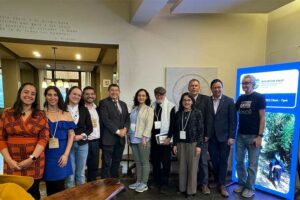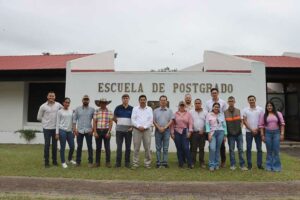CATIE provides nature-based solutions as part of Costa Rica's decarbonization plan
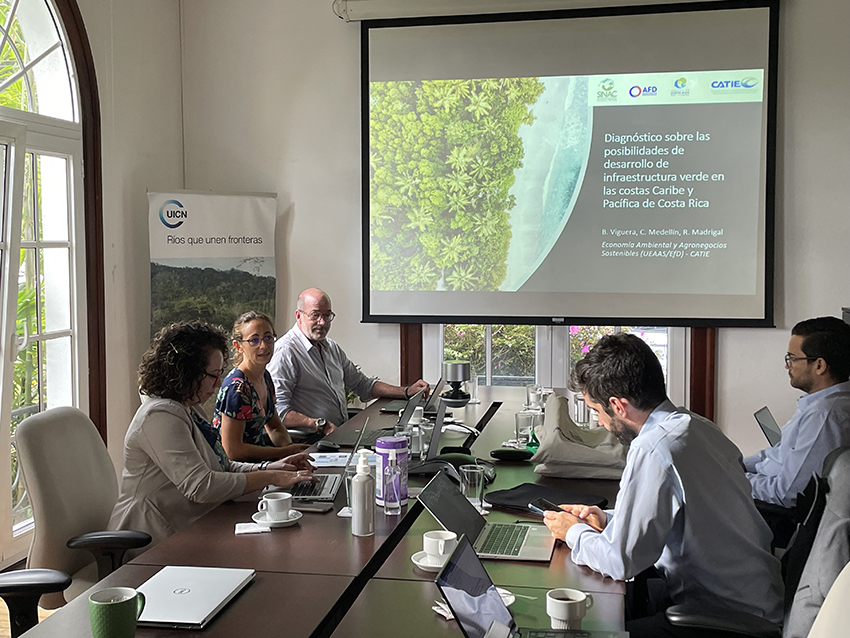
- Through studies, key information was generated to implement, monitor and scale nature-based solutions, thus contributing to compliance with the country's NDCs..
November 29, 2022. After developing technical assistance to contribute to the Costa Rican government's National Decarbonization Plan, CATIE (Tropical Agricultural Research and Higher Education Center), the International Union for Conservation of Nature (IUCN) and the Forever Costa Rica Association, with funding from the French Development Agency (AFD, its Spanish acronym), presented two studies that generated key information and tools for the consolidation of a management model for rural, urban and coastal territories that facilitates the protection of biodiversity, the increase and maintenance of forest cover and the provision of ecosystem services, based on nature-based solutions.
The first study was a baseline of the integrated monitoring system for mangrove ecosystems in the Gulf of Nicoya, based on the Protocol for Ecological Monitoring of Mangroves in Costa Rica. This study contributed to the generation of knowledge, the dialogue of knowledge and the exchange of best practices to guide planning and integrated management of mangroves in the Gulf of Nicoya; it also increased the representativeness of the mangrove ecosystem in the sample of the National Forest Inventory to improve the level of precision of the estimates generated.
The second study consisted of a diagnosis of opportunities for the development of green infrastructure in coastal areas of Costa Rica, through which different options for coastal green infrastructure were characterized and evaluated to provide elements that allow the inclusion of nature-based solutions in planning, as well as their implementation and monitoring.
In the development of both studies, the National System of Conservation Areas (SINAC, its Spanish acronym) served as the counterpart of the Costa Rican government. In addition, local partners such as municipalities, the private sector and academia were key to the process.
The two studies support SINAC's mangrove agenda, generating capacities that already allow coordinating and replicating actions in other mangroves in the country, as well as in associated ecosystems, such as marsh wetlands, gallery forests or coral reefs, with emphasis on Biological Corridors and rural areas, in order to support local processes of adaptation to climate change, regional processes such as the management of marine-coastal zones, and national processes such as the integration of mangroves into national Greenhouse Gas (GHG) inventories, as well as direct contributions to the country's goals.
In addition, these inputs are generating key information for implementing and scaling nature-based solutions, thus contributing to meeting the country's Nationally Determined Contribution (NDC) and conservation goals.
The National Decarbonization Plan is a radical transformation approach for Costa Rica. It is a political planning instrument and a long-term development vision that will allow the country to chart a transformative path towards a green, sustainable and low-carbon economy, where sustainable management of ecosystems, restoration of blue carbon ecosystems, and green infrastructure will be key aspects to achieve its fulfillment. Specifically, it is an example of how countries around the world can convert their development models towards low-carbon processes.
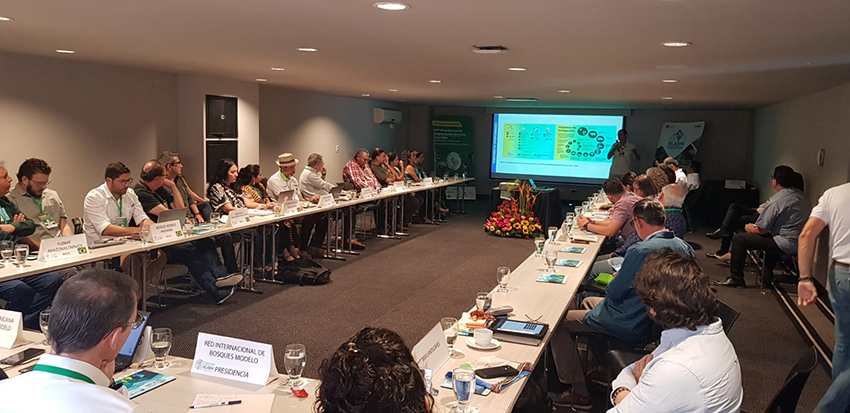
More information
Pablo Imbach
Leader
Climate Action Unit
CATIE
Róger Madrigal
Leader
Environmental Economics and Sustainable Agribusiness Unit
CATIE
Written by:
Karla Salazar Leiva
Communications Officer
Information Technology and Communication
CATIE

